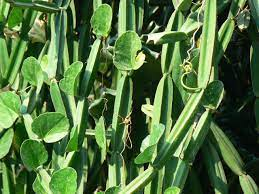MINT(Mentha arvensis)
Mint, scientifically known as Mentha, is a versatile herb that has been used
for centuries for its medicinal properties. With its refreshing aroma and
cooling taste, mint leaves have found their way into various traditional
healing practices around the world. From soothing digestive issues to
alleviating respiratory problems, mint leaves have a wide range of health
benefits. In this article, we will explore the medicinal uses of mint leaves
and the scientific evidence supporting their therapeutic properties.
Mint leaves are rich in
essential oils, including menthol, menthone, and limonene, which contribute to
their distinct aroma and therapeutic effects. One of the most well-known
benefits of mint is its ability to aid digestion. Mint leaves have been
traditionally used to relieve indigestion, stomach cramps, and bloating. The
essential oils in mint leaves stimulate the production of digestive enzymes,
helping to break down food and ease discomfort. Mint leaves also have a calming
effect on the stomach muscles, reducing spasms and promoting smoother
digestion.
Furthermore, mint leaves
have been found to have antimicrobial properties. The menthol content in mint
leaves has been shown to inhibit the growth of various bacteria and fungi,
including those responsible for oral infections such as tooth decay and bad
breath. Chewing mint leaves or using mint-infused mouthwashes can help freshen
breath and maintain oral hygiene.
Mint leaves are also
known for their ability to relieve headaches and migraines. The cooling
sensation provided by menthol helps to relax tense muscles and alleviate pain.
Applying diluted mint oil or using a mint-based topical ointment on the
forehead and temples can provide quick relief from headaches.
In addition to its
digestive and analgesic properties, mint leaves have been used for their
expectorant and decongestant effects on the respiratory system. The menthol in
mint leaves acts as a natural bronchodilator, helping to open up airways and
relieve congestion. Drinking mint tea or inhaling steam infused with mint
leaves can help ease symptoms of respiratory conditions like coughs, colds, and
asthma.
Furthermore, mint leaves
have shown potential in managing symptoms of irritable bowel syndrome (IBS).
Several studies have indicated that peppermint oil, derived from the leaves of
the mint plant, can help reduce abdominal pain, bloating, and gas associated
with IBS. The antispasmodic properties of mint leaves are believed to be
responsible for these beneficial effects.
Moreover, mint leaves
possess antioxidant properties, which help protect the body against oxidative
stress and damage caused by free radicals. The antioxidants found in mint
leaves, such as rosmarinic acid and flavonoids, have been associated with
various health benefits, including reducing inflammation and lowering the risk
of chronic diseases like heart disease and cancer.
Beyond their medicinal
uses, mint leaves have also been utilized for their calming and soothing
effects. The aroma of mint has been shown to have a relaxing effect on the mind
and body, helping to reduce stress and anxiety. Mint leaves are often used in
aromatherapy practices, such as the use of essential oils or dried leaves in
diffusers or bath products, to promote relaxation and improve mood.
While mint leaves offer
numerous health benefits, it is important to note that they should be used in
moderation. Some individuals may be allergic to mint, and excessive consumption
or application of mint products may cause adverse effects such as skin
irritation or heartburn. Pregnant women should also consult their healthcare
provider before using mint leaves for medicinal purposes.
In conclusion, mint
leaves have a long history of medicinal use and offer a range of health
benefits. From aiding digestion and relieving headaches to promoting
respiratory health and reducing stress, mint leaves have proven their
therapeutic potential. The essential oils and antioxidants present in mint
leaves contribute to their healing properties, making them a valuable addition
to natural remedies and traditional healing practices. However, it is essential
to use mint leaves in moderation and consult a healthcare professional when
needed to ensure their safe and effective use.
HAPPY BLOGGING!!!
DEEPIKA KRISHNAMOORTHY
A RESEARCH SCHOLAR




Comments
Post a Comment